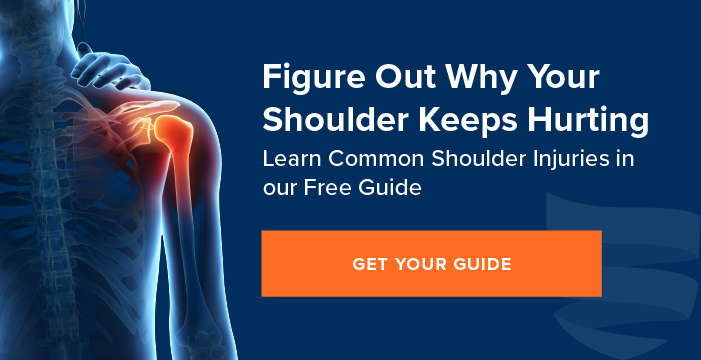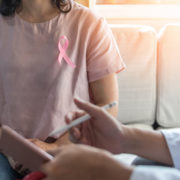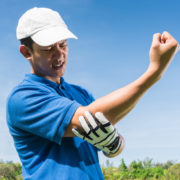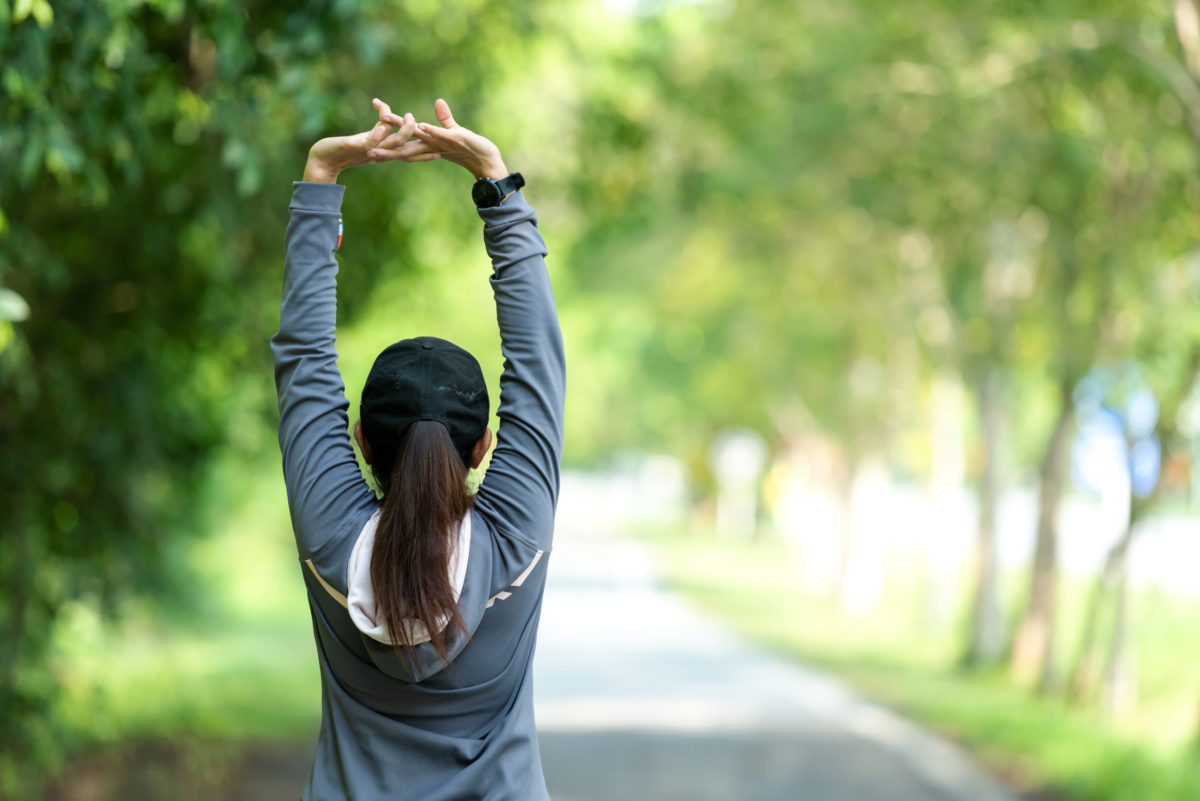
Hearing a popping or cracking sound in your shoulder when you move your arm––a condition called crepitus––can be completely normal, and is not necessarily a sign of an injury or underlying condition. However, if you have shoulder pain and popping, clicking, grinding, or other unusual noises coming from the joint, seeing a doctor can prevent further injury.
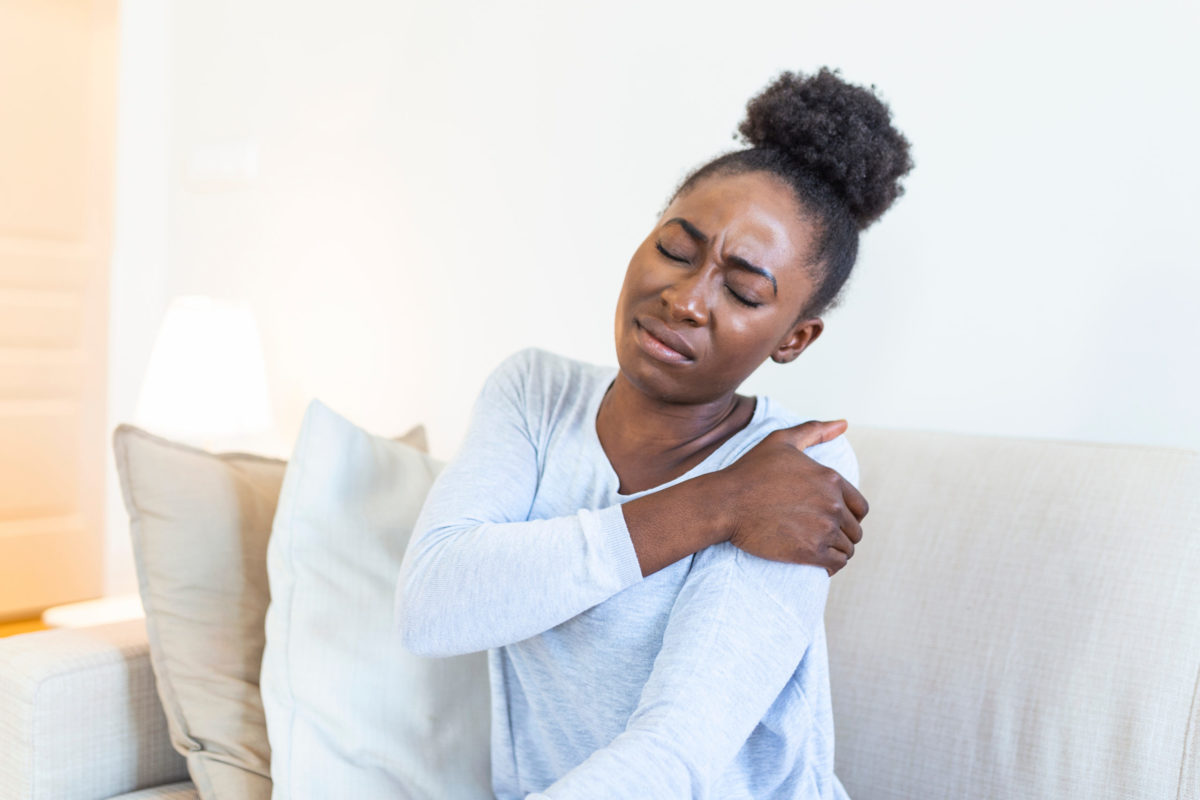
At EmergeOrtho—Triangle Region, our team of board-certified orthopedic surgeons is experienced in diagnosing the conditions that can lead to shoulder pain and popping. Using state-of-the-art methods and technology, they will determine the cause of your discomfort and develop a treatment plan that will help you emerge stronger, healthier, and better.
With that in mind, what could be causing your shoulder clicking and popping?
Understanding the Shoulder Joint
To explain why you may be experiencing shoulder popping, it is useful to first explain how the shoulder joint works.
The shoulder joint is a ball-and-socket joint. The ball is the end of the upper arm bone (humerus), which connects into the socket in the shoulder blade (scapula); the bone rests inside a cup-like structure made from cartilage called the labrum. Everything is held in place by four muscles that form the rotator cuff.
The shoulder joint is designed to allow maximum mobility, but it is also especially susceptible to injury. The fact that there are so many potential sources of crepitus underscores the importance of seeing a doctor for an exam, especially when you have pain.
The Most Common Causes of Shoulder Pain and Popping
So what are the causes of shoulder pain and popping? Some of the most common include cavitation, osteochondroma, bursitis, bone fractures, labral tears, and arthritis.
Cavitation
Sometimes, just lifting your arms during a workout or any other activity, especially if you do it quickly, can cause air bubbles in your joints to pop. Called cavitation, the phenomenon is similar to what happens when you crack your knuckles. Doctors do not know why this happens, but as long as you don’t have pain, you don’t need to worry about the noise.
Osteochondroma
Sometimes, the shoulder popping is caused by a benign bone growth on the scapula, shoulder, or rib cage. Again, popping or clicking noises are usually the only symptoms, and there’s no cause for concern until you have pain. Rarely, if the bone growth causes other problems, it will need to be surgically removed.
Scapulothoracic Bursitis
Joints are protected by fluid-filled sacs called bursa, which help protect the joint and keep it moving smoothly. When the bursae become irritated or inflamed, usually from overuse or an injury, you may experience a stabbing sensation with the popping noise.
Bursitis treatment is usually conservative. Rest and immobilization, icing to reduce swelling, and over-the-counter pain relievers are effective in many cases as reducing inflammation and pain. Some people benefit from cortisone injections as well. If the bursitis is due to trauma, though (such as a hard fall) then the bursa may need to be aspirated to remove the fluid.
Surgery is rarely needed to treat bursitis and is only performed when other methods are ineffective. The surgery may remove fluid or the entire sac.
Bone Fractures
If you fracture your shoulder in an accident and it does not heal correctly, you may hear grinding or popping noises when you raise your arms. Even if you only had a hairline fracture, uneven healing can create ridges. Your muscles may rub against these ridges, causing a grinding sound.
Because shoulder popping can continue long after a fracture has healed, it is best to seek medical care as soon as possible after an accident or injury, even if you do not think anything is broken, to support proper healing.
Labral Tears
If you hear a popping noise any time you use your arm and have consistent pain and discomfort, you may have a torn labrum. This injury is usually caused by a hard fall, a direct blow, or sudden hard pull on the joint.
In addition to shoulder pain and popping, a torn labrum can cause a decreased range of motion, instability, and with extreme injuries, shoulder dislocations. Initial treatment is usually rest, anti-inflammatory medication, and physical therapy. In some cases, this is enough to heal the injury.
However, if they are ineffective, surgery to repair the labrum is necessary. Depending on the extent of the damage, the surgeon may only need to remove the torn tissue, or they may need to reattach tendons to the labrum using screws or pins. In either case, rehabilitation involves physical therapy to regain strength and mobility in the joint.
Osteoarthritis
Grating, grinding, and cracking noises when you move your shoulder can be a sign of osteoarthritis. Arthritis causes the cartilage that cushions the joints to deteriorate and the noises could indicate that bones are rubbing against each other. Arthritis will eventually cause pain and stiffness as well.
Treatment for arthritis usually involves anti-inflammatory medication, physical therapy, and other pain relief measures. However, if the joint degenerates significantly, shoulder replacement surgery may be an option to consider.
Shoulder Pain Relief at EmergeOrtho—Triangle Region
If shoulder popping is accompanied by pain or becomes bothersome, make an appointment with one of the doctors at EmergeOrtho to learn why and develop a treatment plan. You can self-schedule an appointment online, or call us any time at (919) 220-5255.

